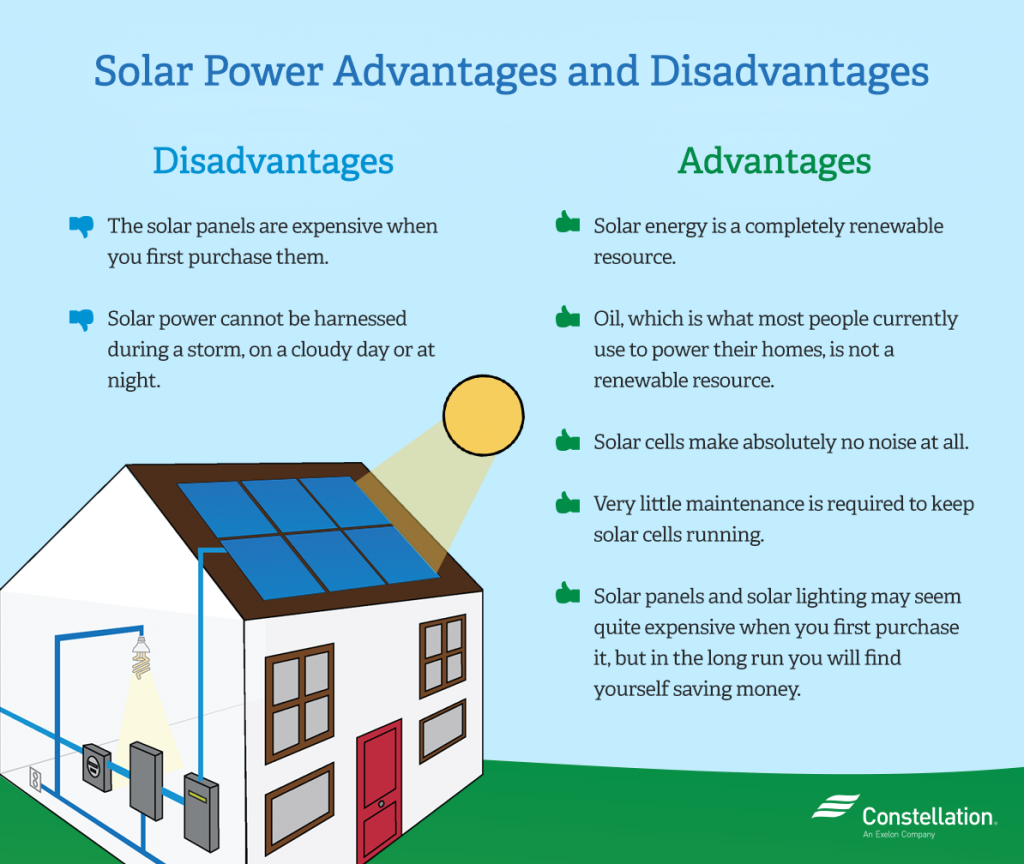Optimizing Energy: Home Solar Installation Essentials

Harnessing the Power of the Sun
In the pursuit of sustainable and cost-effective energy solutions, home solar installation has emerged as a transformative choice for homeowners. This article explores the essentials of installing solar panels at home, offering insights into the benefits, considerations, and steps involved in embracing solar energy.
The Advantages of Home Solar Installation
The benefits of home solar installation are multifaceted. Firstly, solar power is a renewable energy source, meaning it draws from an infinite and sustainable source—the sun. This inherently reduces reliance on finite fossil fuels, contributing to environmental conservation and mitigating the impact of climate change. Additionally, solar energy systems lead to substantial long-term cost savings on electricity bills, making them a financially sound investment.
Assessing Your Home’s Solar Potential
Before diving into home solar installation, assessing your home’s solar potential is crucial. Factors such as sunlight exposure, roof orientation, and potential shading from nearby structures or trees impact the efficiency of a solar energy system. Conducting a thorough solar site assessment ensures that your home is well-suited for solar panel installation, maximizing the system’s effectiveness.
Understanding Solar Panel Components
To embark on a successful home solar installation journey, it’s essential to understand the components of a solar panel system. Solar panels, inverters, mounting racks, and electrical wiring comprise the key elements. Solar panels, typically made of photovoltaic cells, capture sunlight and convert it into electricity. Inverters convert this direct current (DC) electricity into alternating current (AC) electricity suitable for home use.
Navigating Government Incentives and Rebates
Government incentives and rebates can significantly offset the initial costs of home solar installation. Many governments offer tax credits, rebates, and other financial incentives to encourage the adoption of solar energy. Researching and understanding the available incentives in your region is an integral step in making home solar installation more economically viable.
Choosing the Right Solar Installer
Selecting a reputable solar installer is paramount to the success of your home solar installation. Look for certified and experienced professionals who can assess your home’s unique needs and provide tailored solutions. Reading reviews, seeking recommendations, and verifying credentials can help ensure a smooth and efficient installation process.
The Installation Process: From Assessment to Connection
Once you’ve selected a solar installer, the installation process typically follows a systematic approach. After the initial assessment, the solar panels are strategically mounted on the roof to maximize sunlight exposure. The inverters are installed to convert the captured solar energy into usable electricity. Finally, the system is connected to your home’s electrical panel, allowing seamless integration with your existing power infrastructure.
Monitoring and Maintaining Your Solar System
After home solar installation, ongoing monitoring and maintenance are essential to ensure optimal performance. Monitoring systems track energy production, allowing homeowners to assess the effectiveness of their solar panels continually. Regular maintenance, such as cleaning panels and checking for potential issues, helps extend the lifespan of the system and ensures consistent energy generation.
Embracing a Sustainable Future
Home solar installation is not merely a technological upgrade but a conscious choice to contribute to a sustainable future. By harnessing the power of the sun, homeowners can play an active role in reducing carbon footprints and promoting clean energy. Embracing solar energy at the individual level contributes to a collective effort in building a greener and more sustainable world.
Home Solar Installation: A Transformative Journey
In conclusion, home solar installation is a transformative journey that aligns environmental consciousness with financial prudence. From assessing solar potential to selecting the right installer and embracing ongoing maintenance, each step contributes to the success of your solar energy system. To explore more about home solar installation and its benefits, visit Home Solar Installation for valuable resources and guidance. The sun’s energy awaits, ready to power a sustainable and energy-efficient home.
Maximizing Savings: Unveiling Solar Panel Benefits

Maximizing Savings: Unveiling Solar Panel Benefits
Solar panels have emerged as a revolutionary solution, not only for environmentally conscious individuals but also for those looking to maximize savings on their energy bills. The numerous benefits associated with solar panels make them a compelling choice for homeowners. In this article, we’ll delve into the advantages of solar panels and how they contribute to both financial savings and a sustainable future.
Harnessing Solar Energy for Savings
The primary benefit of solar panels lies in their ability to harness renewable energy from the sun. Solar panels convert sunlight into electricity, offering a clean and sustainable power source. By tapping into this natural resource, homeowners can significantly reduce their reliance on traditional grid electricity, leading to substantial cost savings in the long run.
Reduced Energy Bills: A Tangible Advantage
One of the most immediate and tangible benefits of solar panels is the reduction in energy bills. By generating your own electricity, you can lower or even eliminate your monthly electricity expenses. This financial relief can be especially significant over the lifespan of the solar panel system, providing homeowners with more disposable income to allocate to other priorities.
Government Incentives and Tax Credits
Governments worldwide recognize the importance of transitioning to renewable energy sources. As a result, many offer incentives and tax credits to encourage the adoption of solar panels. These financial perks can offset the initial investment in solar panels, making the switch to solar even more attractive and financially feasible for homeowners.
Increased Home Value
Investing in solar panels can enhance the overall value of your home. Potential buyers are increasingly seeking energy-efficient features, and a solar panel system is a valuable addition. Homes with solar panels not only stand out in the real estate market but also command higher prices, providing a return on investment beyond the energy savings.
Environmental Impact: A Sustainable Choice
Beyond financial benefits, choosing solar panels contributes to a more sustainable and eco-friendly lifestyle. Solar energy is a clean and renewable resource that reduces greenhouse gas emissions and dependency on fossil fuels. By adopting solar panels, homeowners actively participate in mitigating climate change and preserving the environment for future generations.
Energy Independence and Security
Solar panels provide a degree of energy independence by allowing homeowners to generate their electricity. This self-sufficiency becomes particularly advantageous during power outages or disruptions to the grid. Solar-powered homes can continue to operate, ensuring a constant power supply and increased energy security.
Low Maintenance and Longevity
Solar panels are known for their durability and low maintenance requirements. Once installed, they have a long lifespan, often exceeding 25 years. With minimal upkeep, such as regular cleaning and occasional inspections, solar panels can continue to generate electricity efficiently, ensuring a reliable and long-term source of energy savings.
Technological Advancements: Improving Efficiency
Ongoing advancements in solar technology continue to improve the efficiency and affordability of solar panels. Innovations in design and manufacturing processes lead to more cost-effective installations and increased energy output. Staying informed about these advancements allows homeowners to make informed decisions and benefit from the latest technological improvements.
Community and Global Impact
By embracing solar panels, homeowners become part of a larger movement towards sustainability. The collective adoption of solar energy at the community level contributes to a reduction in overall carbon emissions. Each household’s commitment to solar power has a ripple effect, fostering a cleaner environment and a more sustainable energy future globally.
Conclusion: A Bright Future with Solar Panel Benefits
In conclusion, the benefits of solar panels extend far beyond financial savings. From reducing energy bills and increasing home value to contributing to a cleaner environment, solar panels offer a multitude of advantages. Embracing solar energy not only makes economic sense but also aligns with a commitment to a more sustainable and responsible way of living. To learn more about the myriad benefits of solar panels, visit SolarHelp.info for comprehensive insights and guidance on harnessing the power of the sun for a brighter future.
Solar-Powered Living: Transform Your Home with Clean Energy

Harnessing the Power of Solar Energy at Home
The concept of a solar energy home has gained significant traction in recent years as individuals seek sustainable alternatives to traditional energy sources. This article explores the transformative potential of embracing solar power for your home, touching upon the benefits, considerations, and steps involved in creating a solar-powered living space.
The Advantages of a Solar Energy Home
Investing in solar energy for your home offers a myriad of benefits. Foremost is the potential for significant cost savings on energy bills. Solar panels harness sunlight to generate electricity, reducing reliance on traditional grid power. Additionally, solar energy is a clean and renewable source, contributing to environmental conservation and reducing your carbon footprint.
Assessing Your Home’s Solar Potential
Before transitioning to a solar energy home, it’s crucial to assess your property’s solar potential. Factors such as roof orientation, shading from nearby structures, and local climate conditions impact the efficiency of solar panels. Conducting a solar site assessment ensures that your home is well-suited for solar installation, optimizing energy production.
Choosing the Right Solar System
Selecting the right solar system is a critical step in transforming your home into a solar-powered haven. Different systems, such as grid-tied, off-grid, or hybrid, cater to varying energy needs and geographic locations. Consulting with a solar professional helps determine the most suitable system for your home, ensuring optimal performance.
Government Incentives and Rebates
Government incentives and rebates can significantly reduce the upfront costs of transitioning to a solar energy home. Many governments offer tax credits, rebates, and grants to encourage the adoption of solar power. Researching and understanding the available incentives in your region is essential for making solar energy more financially accessible.
Professional Solar Installation
While some homeowners may consider DIY solar installation, opting for professional installation ensures safety, efficiency, and compliance with local regulations. Solar professionals assess your home’s energy needs, design a customized system, and handle the installation process, guaranteeing a seamless transition to solar energy.
Offsetting Energy Costs with Net Metering
Net metering is a valuable feature for solar energy homes connected to the grid. This system allows homeowners to earn credits for excess energy generated by their solar panels. During periods of low energy production, such as nighttime, these credits are used to offset the electricity drawn from the grid, maximizing cost savings.
Monitoring and Maintaining Your Solar System
Regular monitoring and maintenance are crucial for the longevity and optimal performance of your solar energy home. Monitoring systems provide real-time insights into energy production, enabling homeowners to identify and address potential issues promptly. Routine maintenance, such as cleaning panels and checking connections, ensures continued efficiency.
The Environmental Impact of Solar Homes
Embracing solar power extends beyond individual benefits; it positively impacts the environment. Solar energy is a clean and sustainable alternative to fossil fuels, reducing air and water pollution. By transitioning to a solar energy home, you contribute to a collective effort in combatting climate change and preserving the planet for future generations.
Embracing a Sustainable Lifestyle
Creating a solar energy home goes hand in hand with embracing a sustainable lifestyle. Beyond the immediate financial and environmental benefits, it fosters a conscious and responsible approach to energy consumption. Homeowners become advocates for clean energy and inspire others to make eco-friendly choices.
Conclusion: A Bright Future with Solar Energy Homes
In conclusion, transforming your home into a solar energy haven is a forward-thinking and environmentally conscious decision. From financial savings to environmental impact and a commitment to sustainability, the benefits are manifold. To embark on your solar energy journey and explore the possibilities for your home, visit Solar Energy Home for valuable insights and resources. Join the solar revolution and usher in a bright, sustainable future for your home and the planet.
Maximizing Benefits: The Power of Solar Energy

Maximizing Benefits: The Power of Solar Energy
As the world grapples with the challenges of climate change, the adoption of sustainable energy sources has become increasingly crucial. Among these sources, solar energy stands out for its numerous environmental and economic benefits. Let’s explore the multifaceted advantages that solar energy brings to the table.
**1. Clean and Renewable: Paving the Way for a Sustainable Future
At the forefront of solar energy benefits is its clean and renewable nature. Unlike traditional fossil fuels, solar power generates electricity without emitting harmful pollutants or greenhouse gases. Harnessing the sun’s energy is a sustainable solution that mitigates environmental impact and contributes to the global transition to cleaner energy sources.
**2. Reduced Energy Bills: Economic Savings with Solar Power
One of the most tangible benefits for homeowners is the significant reduction in energy bills. Solar panels on residential rooftops convert sunlight into electricity, providing an independent and renewable source of power. This translates into lower monthly utility costs, offering both immediate and long-term financial savings for households.
**3. Low Maintenance and Longevity: A Wise Investment
Solar energy systems are renowned for their low maintenance requirements. With no moving parts and a simple design, solar panels generally require minimal upkeep. Additionally, manufacturers often provide warranties spanning 20 to 25 years, showcasing the longevity and durability of solar technology. Investing in solar energy becomes a wise and sustainable financial decision for homeowners.
**4. Energy Independence: Breaking Free from Grid Reliance
Solar energy empowers individuals and communities to break free from traditional grid reliance. By generating electricity on-site, homes with solar panels become more self-sufficient, reducing dependence on external power sources. This energy independence not only enhances resilience during grid outages but also contributes to a more decentralized and robust energy infrastructure.
**5. Environmental Impact: Mitigating Climate Change
The environmental benefits of solar energy extend beyond reducing air pollution. By decreasing reliance on fossil fuels, solar power plays a crucial role in mitigating climate change. The reduction of greenhouse gas emissions helps preserve ecosystems, protect biodiversity, and create a more sustainable planet for current and future generations.
**6. Government Incentives: Financial Support for Solar Adoption
Many governments worldwide offer incentives and subsidies to encourage the adoption of solar energy. These incentives can include tax credits, rebates, and feed-in tariffs, making the initial investment in solar installations more accessible and appealing for homeowners and businesses. Exploring available incentives can significantly enhance the financial feasibility of transitioning to solar power.
**7. Job Creation: Fueling Growth in the Solar Industry
The widespread adoption of solar energy contributes to job creation within the renewable energy sector. From manufacturing and installation to maintenance and research, the solar industry has become a significant source of employment opportunities. Supporting solar initiatives not only benefits the environment but also stimulates economic growth and innovation.
Unlocking the Potential: Solar Energy Benefit
In the pursuit of a sustainable and eco-friendly future, solar energy emerges as a key player. Its clean and renewable nature, coupled with economic savings, low maintenance, and job creation, positions solar power as a formidable solution to the challenges posed by conventional energy sources. To explore how you can maximize the benefits of solar energy for your home, visit Solar Energy Benefit.
Conclusion: Harnessing the Sun for a Brighter Tomorrow
As we navigate the complexities of a changing climate and evolving energy needs, embracing solar energy emerges as a practical and impactful solution. From environmental preservation to economic savings and job creation, the benefits of solar energy are far-reaching. By unlocking the potential of the sun, we pave the way for a brighter and more sustainable tomorrow.
